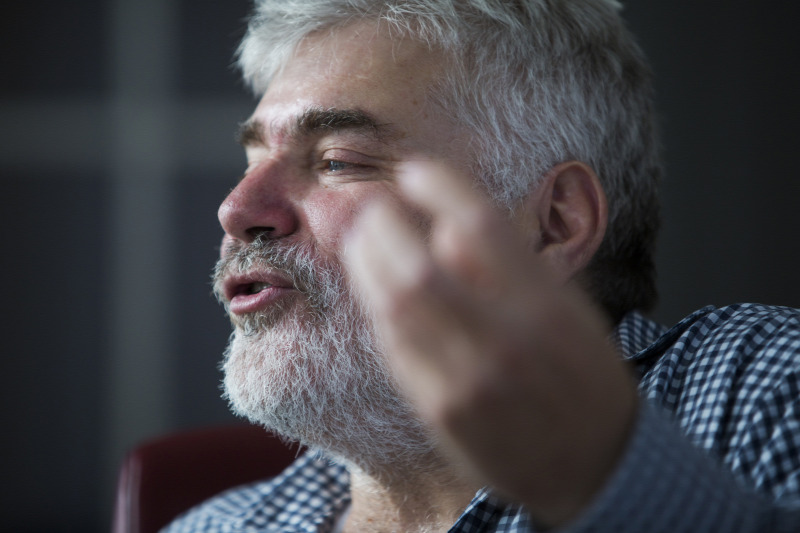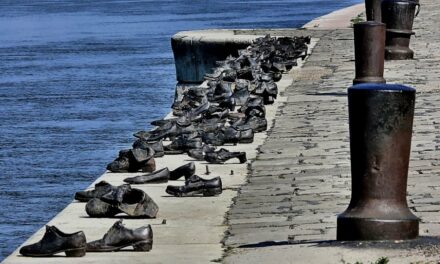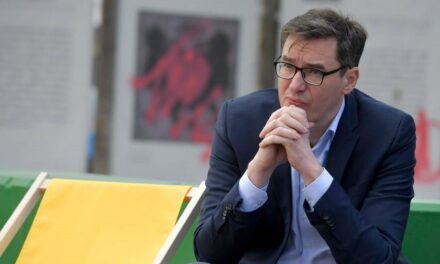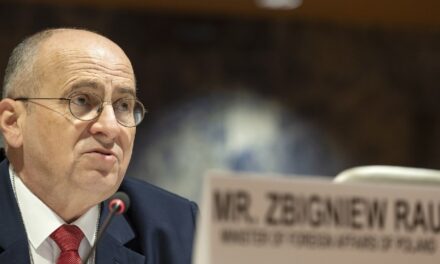DK announced another transfer. Although the Gyurcsány party is gaining weight at an ever faster pace, according to Gábor Horn, head of the Republikon Institute and former SZDSZ politician, this is only suppressing the competing left-wing parties, and the opposition camp is not expanding.
Domestic opposition party politics is slowly looking like the transfer period in football: the formations are trying to get the most valuable players from each other. The most active player is the Democratic Coalition (DK), which otherwise seems to be the most powerful, which made another announcement this Monday that it will continue to work for Ferencsány Gyurcsány
Deputy mayor of Dunaújváros Zsolt Szabó, who was a member of the national presidency of the Dialogue (!).
Before Szabó, several people had already defected to the Gyurcsány party: former party director Olivio Kocsis-Cake, (former) deputy mayor of Pest county István Kenéz and deputy mayor of Erzsébetváros Balázs Szücs, for example. Kocsis-Cake became the DK shadow government commissioner for environmental protection. By the way.
The Gyurcsánys realized that the Dialogue is weak
You could read in several places that the Democratic Coalition lures opposition politicians by offering them key positions. And these politicians take the bait, since last year's parliamentary elections did not turn out as they had previously calculated.
This may be especially true in the case of Dialogue. (Despite what the party claims, they were not shaken by the fact that the Gyurcsánys kidnapped a few people.) From several sources
we were informed that in the case of others the idea of changing parties existed or exists.
At the end of January, Benedek Jávor, head of the Brussels office of the Metropolitan Municipality, denied, and even classified as fake news, the rumors that he would continue in the DK.
"Don't mess with me," he blurted out, "this is complete absurdity." There was never any talk of me moving to DK, DK wasn't looking for me, and I wouldn't go either, and it will remain so. I don't know who is spreading this fake news, the version of this fake news that DK contacted me and I rejected it is not true either."The advisor from Brussels did not wish to comment on this: "This is the task of the party leaders."
Painful point: a Gyurcsányist from Jobbik became a Gyurcsányist
However, a much more interesting "movement" took place recently: Ferenc Varga, according to the previous proposal of Prime Minister candidate Péter Márki-Zay, was ranked 25th on the national list, thus entering the parliament. On the other hand, the politician who joined the Jobbik faction started this year (let's say: he thanked the party's gesture) by announcing that he would leave Jobbik and continue his work as an independent member of parliament. They took a selfie with former president Péter Jakab in T. Ház.
The breakup was not smooth, his former boss, party chairman Márton Gyöngyösi, said that Varga had tricked them.
However, Ferenc Varga did not stop there, as he later chose DK himself.Gyurcsány's party informed the press that his father-in-law, who has been acting as an independent for "a few months", will work as the government commissioner responsible for national self-governments in the "shadow government" in the future. "He is active not only in the parliament and the shadow government, but also in the civil world, with honor as the president of the Gypsies Association, he wants to create a credible and strong alternative in the national interest representation system," the Democratic Coalition wrote about the 29-year-old parliamentarian. (Of course, Jobbik did not like the new step again.)
Ferenc Varga, after breaking his oath to the Holy Crown, would now build a decent Roma policy for the Gyurcsánys with the mandate he stole from Jobbik
- said in the announcement of Jobbik - Conservatives.
The Gyurcsánys are expanding, only at the expense of others
Gábor Horn, head of the Republikon Institute, said that he does not consider the actions of the Democratic Coalition to be reprehensible, as we are between two elections, when similar movements usually take place.
It is understandable if one party wants to get stronger, even at the expense of another party
- said the director, who according to him, what makes the matter spicy is that DK's growth
"he tries to achieve it not from Fidesz voters, but by gobbling up his partners, with whom he is then forced to cooperate".Gábor Horn finds it difficult to imagine that the opposition parties will run separately either in the parliamentary elections next year or in 2026.
The DK will not be able to grow to the size of the MSZP before 2006, it will not be able to become a collective party
- said Horn, and then explained that these kinds of temptations can mean the political message that they are the strongest, but this by no means means that they offer a real alternative to Fidesz.
The director of the Republikon stated that after this, it will be very difficult for the opposition to cooperate in the future.According to Gábor Horn, the fault lines within the opposition are already visible: in his opinion, a memorable example of this was the case of Judit Ráczné Földi, when Momentum tried to undermine the mandate of the representative nominated to replace László Kordás, who died in tragic circumstances.
More recent certificates of the Democratic Coalition
- October
Tibor Déri (formerly Momentum). According to the Újpest mayor, he chose the Democratic Coalition because he maintains good relations with the party's mayors in Budapest.
- November
Balázs Szűcs (Dialogue). The VII. the transfer of the deputy mayor of the district was announced by the SE mayor of Erzsébetváros, Péter Niedermüller, who mentioned: "from today, the Democratic Coalition faction will continue to work for the citizens of Erzsébetváros, for a better, fairer, more European district."
Éva Erdősi (formerly Dialogue). Not long after Balázs Szűcs, the new confirmation was announced, Éva Erdősi, who years ago politicized in dialogue colors, but has since run as an independent, also joins the DK. "Eva Erdősi is thus no longer just our ally, but continues her work in our party, the Democratic Coalition, together with us for a free Hungary and for the people of Csepel."
Alexandra Bodrozsán (formerly Momentum). The DK also welcomed the opposition municipal representative from Kecskemét with open arms, noting in their statement: "The Democratic Coalition welcomes the accession of Alexandra Bodrozsán! We are proud that a strong woman who does not tolerate injustice has been added to the camp of those who believe that European Hungary is the only way out of the Orbán regime!"
Szabolcs Szilágyi (Jobbik). The DK also acquired Szabolcs Szilágyi, a municipal representative from Miskolc, who until then had been a member of the Jobbik faction. The Borsod politician stated that during the primary election he experienced how well he can work together with the local DK.
- December
György Buzinkay (Momentum). The Szentendre-based politician decided on the DK because the party: "has had a certain identity since its birth. The vision of a European, democratic, republican Hungary, the program of the centre-left".
Béla Juhász (formerly Momentum). According to the politician's own statement, he joined the Gyurcsány party because of the poverty he experienced in Hungary: "I have never seen so much poor fate, so much human suffering, so much poverty."
- January
Kocsis-Cake Olivio (Dialogue). The former parliamentarian and party director of Párbeszéd explained his decision to join the DK with the following: "The most important lesson of the 2022 election is that the opposition needs a new strategy and a more organized operation. In the period that has passed since then, the DK has proven that it is capable of providing a new strategy, operating in a disciplined manner, and providing an alternative to the Orbán system."
Attila Horváth, former MSZP deputy mayor of Szombathely.
József Kopcsándi, former MSZP municipal representative of Szombathely.
- March
Ferenc Varga from Jobbik.
Zsolt Szabó from Párbeszéd.
Featured image: Attila Polyák / Origo












